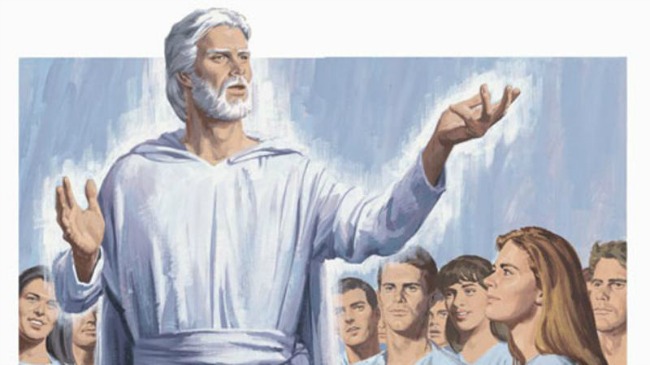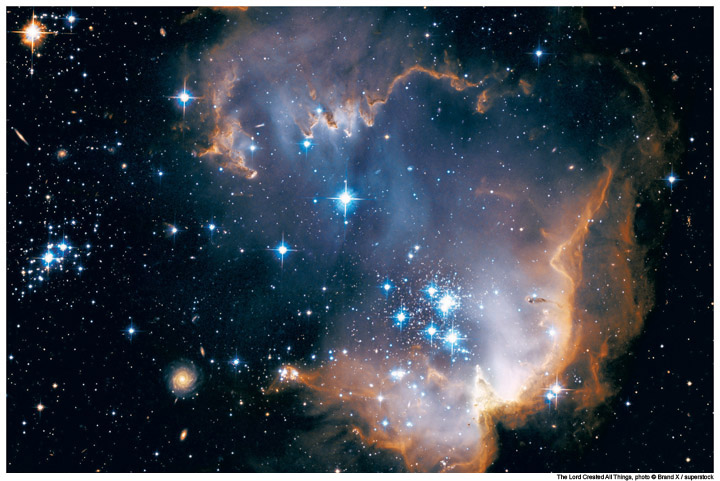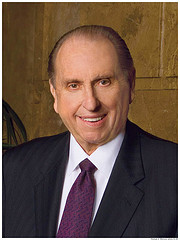Question
Gramps,
I am confused by the idea that Heavenly Father was once a mortal man. This seems contradictory to Him being God. I’m not questioning the doctrine, just really confused how that could be possible. I definitely believe that we can one day become like God, but I also wonder if the idea is that we will be on His same level of divinity? To be frank, the idea that we will be the same as God (vs become *like* Him) doesn’t sit quite right with me. What does this doctrine mean?
Jessica
Answer
Dear Jessica,
The doctrine that God the Father was once as we are has been popularized by a couplet President Lorenzo Snow wrote:
As man now is, God once was:
As God now is, man may be.
As stated by your belief, the second half of the couplet is well-covered in scriptures modern and ancient. The Church of Jesus Christ of Latter-day Saints has devoted an essay to the subject of deification – what man may be. This essay places the doctrine in context with general Christian and Church history and in the context of other latter-day doctrines (including eternal families, humility, and godly governance).
I’m not entirely sure I understand your distinction between being the same as God versus becoming like God, unless you mean being the same as God is a way to replace or supplant Him. If that’s the case, I have never heard such a doctrine taught in the Church of Jesus Christ. The vision of the kingdoms of glory describes the relationship between the exalted saints and God the Father. Exalted saints “are gods, even the sons of God” (D&C 76:58). God the Father still maintains His paternal relationship with His exalted children. If anything, this relationship is amplified as it is strengthened through covenant keeping. Joseph described this non-competitive deification in his King Follett Sermon.
“What [does] it [mean to be heirs of God and joint-heirs with Christ]? To inherit the same power, the same glory and the same exaltation, until you arrive at the station of a god, and ascend the throne of eternal power, the same as those who have gone before. What did Jesus do? Why, I do the things I saw my Father do when worlds came rolling into existence. My Father worked out His kingdom with fear and trembling, and I must do the same; and when I get my kingdom, I shall present it to My Father, so that He may obtain kingdom upon kingdom, and it will exalt Him in glory. He will then take a higher exaltation, and I will take His place, and thereby become exalted myself. So that Jesus treads in the tracks of His Father, and inherits what God did before; and God is thus glorified and exalted in the salvation and exaltation of all His children.“
Note that as Jesus or His disciples ascend in glory, so also does the Father.
As to the first part of the couplet, not much has been revealed on it and thus not much is taught about it. Reading over the chapter in Lorenzo Snow manual that quotes it (linked above) you’ll find that it focuses on the second half and ignores the first half. Joseph Smith alluded to the doctrine shortly after the King Follett Sermon in the Sermon in the Grove just weeks before his death. He focuses in on Revelation 1:6 which states Jesus Christ “hath made us kings and priests unto God and his Father”.
“If Jesus Christ was the Son of God, and John discovered that God the Father of Jesus Christ had a Father, you may suppose that He had a Father also. Where was there ever a son without a father? And where was there ever a father without first being a son? Whenever did a tree or anything spring into existence without a progenitor? And everything comes in this way. Paul says that which is earthly is in the likeness of that which is heavenly, Hence if Jesus had a Father, can we not believe that He had a Father also? I despise the idea of being scared to death at such a doctrine, for the Bible is full of it.
“I want you to pay particular attention to what I am saying. Jesus said that the Father wrought precisely in the same way as His Father had done before Him. As the Father had done before? He laid down His life, and took it up the same as His Father had done before. He did as He was sent, to lay down His life and take it up again; and then was committed unto Him the keys. I know it is good reasoning.” (Teachings of the Prophet Joseph Smith, pg 373).
So what does this mean? Was God the Father a Savior to another order of creation? Or did He have to rely on some other Redeemer to save Him? Is this just the same plan over and over, worlds without end? We don’t know. We await further light and knowledge. We are often uncomfortable sitting openly in the shadow of ignorance, but we should not ignore the illuminating light of what has been revealed. Just because we do not fully understand the first half of the couplet does not mean we can’t rejoice in the many revelations about the second half. And if it is blasphemy to have God suffer death and the rest of the mortal experience, Christianity risks the greatest of sacrilege by having God the Son born helpless and later horribly crucified.
Gramps







